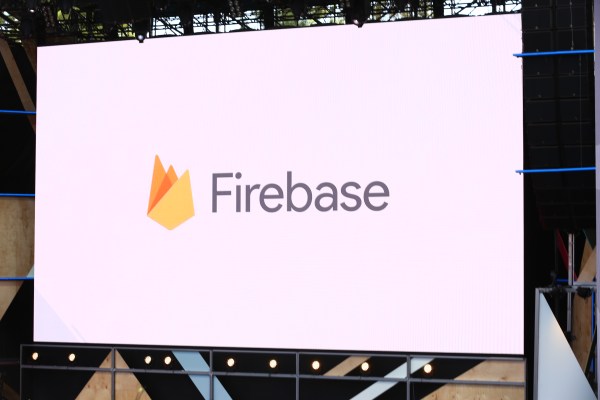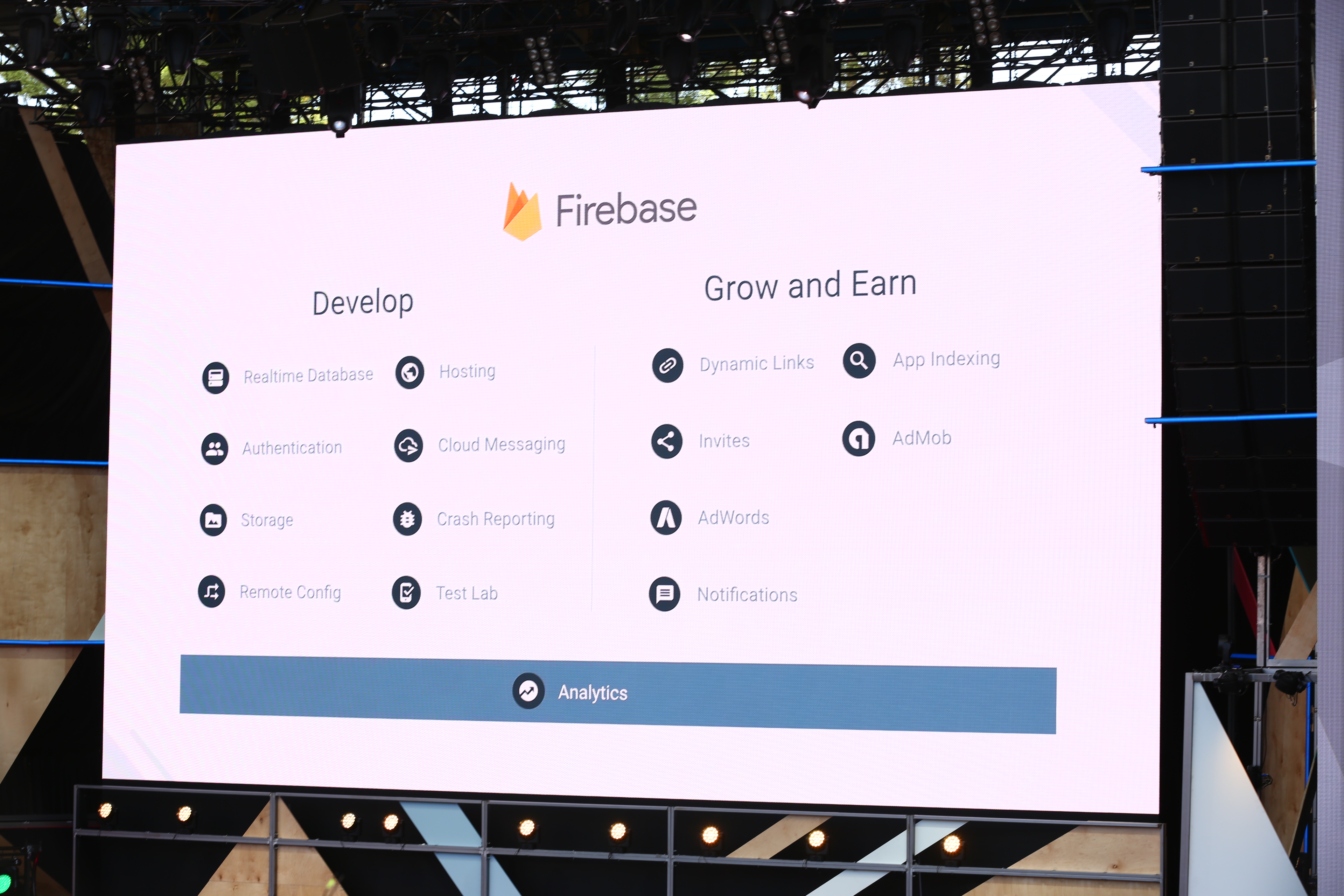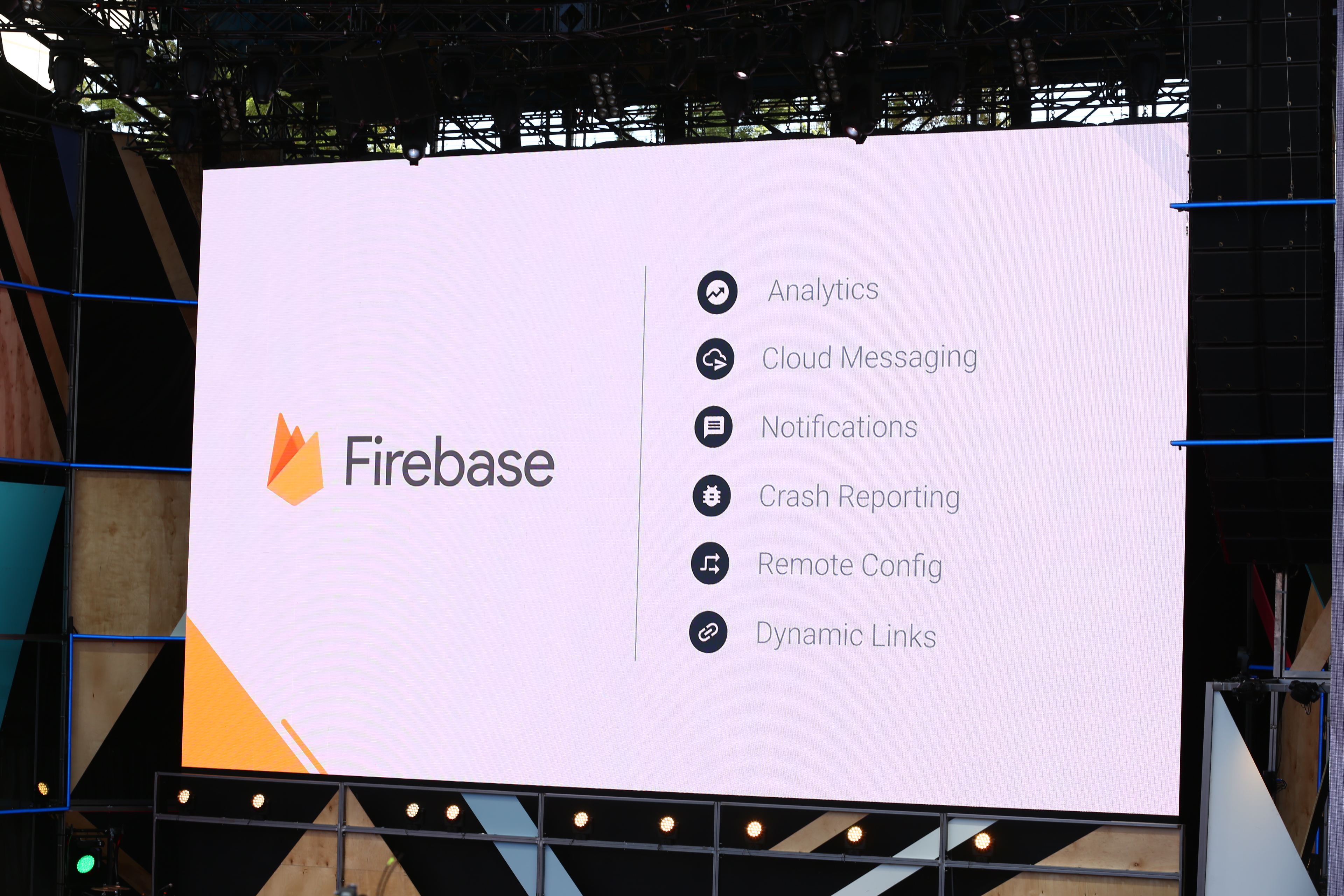Google offers a plethora of cloud services that mobile developers can use to power their apps. With Firebase, which it acquired in 2014, it already offered developers a dedicated platform and SDK for building mobile apps; today it is greatly expanding this service by launching a number of new features and integrating the service deeper into the rest of its cloud tools.
The new Firebase, which the company announced at its I/O developer conference today, takes the service’s existing features and expands upon them. In its previous incarnation, Firebase was somewhat similar to Facebook’s now-defunct Parse in that it offered a database service, user authentication features and hosting tools. In this new version, Firebase takes many of Google’s existing developer tools, like Google Cloud Messaging, and combines them with new and existing Firebase services.
With this update, Google is turning Firebase into a unified app platform for its now 470,000 developers on the service (up from 110,000 when it acquired Firebase).
Firebase now features a very deeply integrated analytics services, for example, which was built by the same team that is responsible for Google Analytics. All developers have to do to implement this is add a few lines of code to their apps. This will feed basic user information right from the app to Firebase, but just like with Google Analytics, developers can also instrument specific parts of their apps with fine-grained events in order to, for example, track whenever a button was pressed or a purchase was made.
Using this data, Firebase can then build audience segments and allow developers to analyze their users’ behavior in even more detail, and see how their advertising campaigns are performing.
These audience segments play a major role in two other new features the team built into the service. The first is the ability to make remote configuration changes in apps. You could use this to do some A/B testing, for example, but also to maybe give some players in your game a bit more time to finish a level or to present a different call to action to those of your users who have previously bought something in your app.
Another new feature that can make use of these segments is Firebase’s new notifications system. This feature is based on Google Cloud Messaging, which is now changing its name to Firebase Cloud Messaging (another sign for how important the Firebase brand is to Google). The company now offers all Firebase users free and unlimited notifications with support for iOS, Android and the Web.
Combined with the audience segmentation, developers can easily send one notification to their users in the U.S. and Canada, for example, and a translated one to their users in another country.
With this update, Google is also integrating into Firebase its Cloud Test Lab for testing mobile apps on real hardware, renaming it the Firebase Test Lab. Access to this service is now built right into the Firebase developer console.
Other new Firebase features include crash reporting (which also reports right into the new analytics service so you can see how crashes affect your users), and the ability to create dynamic deep links into your app. What makes these links dynamic is that you can set rules for where they should take users. If somebody has your Android app installed, for example, the link can point directly into the app. For users who don’t have the app installed, the link can point to the Play Store.
Also new are Firebase Invites for allowing app users to share referral codes, Firebase App Indexing (previously known as Google App Indexing) for bringing app content into Google Search and integration with Google’s AdWords and AdMob advertising platforms.
Google also is introducing a new pricing plan for Firebase with this update. There is now a free plan with some pretty decent limits, as well as a fixed-rate plan for early-stage startups that want a predictable monthly bill, and a pay-as-you go plan for larger apps.
As the Firebase team told me, Google now sees Firebase as its recommended platform for building mobile apps.
With Parse, of course, Facebook once had very similar ambitions to offer a cloud-based backend for mobile developers. Facebook shut down Parse earlier this year, but the Firebase team argues that its users don’t have to fear a similar fate because Google sees Firebase as a way to bring more users onto its cloud platform. Firebase, after all, ties into various other Google services, including its ads business, but also services like BigQuery (which you can now use to analyze your raw analytics data). Facebook didn’t have this natural tie-in for other services on its platform.



